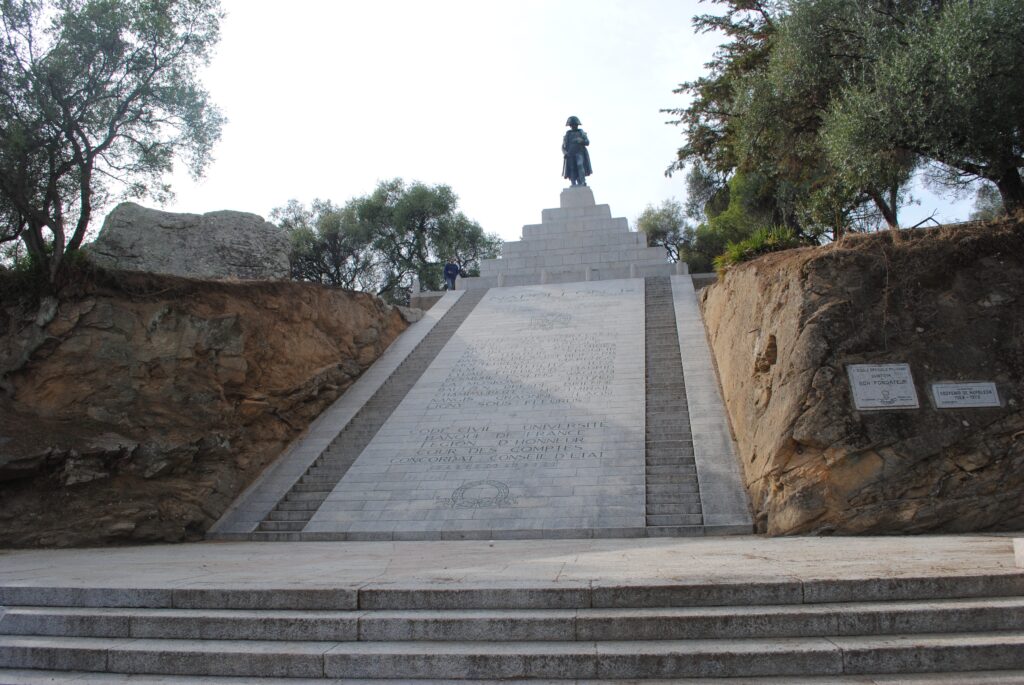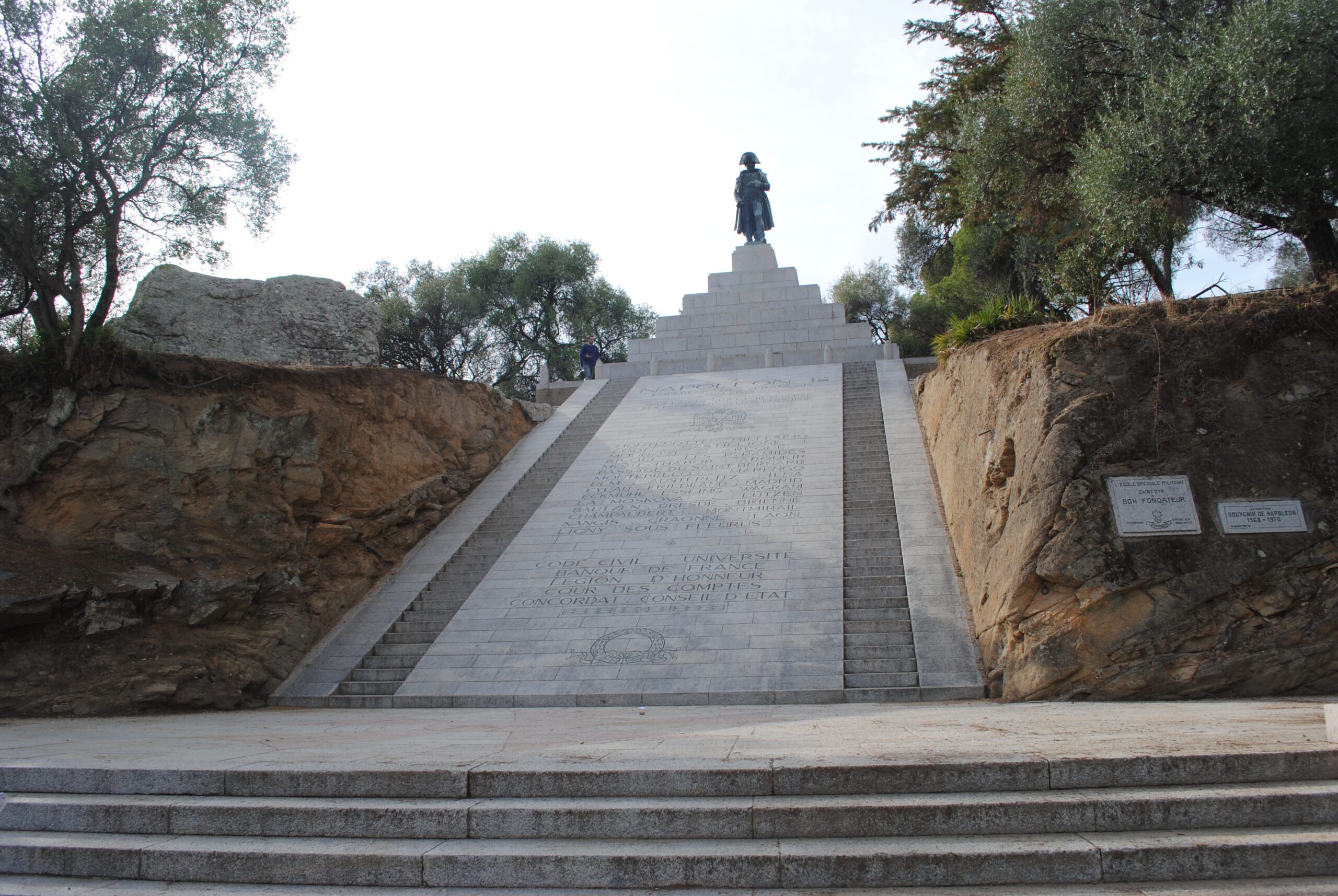Ridley Scott’s film “Napoleon” has generated excitement and intrigue with its release of trailers depicting French troops led by Joaquin Phoenix firing cannons at Egypt’s pyramids. Although these scenes are captivating, historians and scholars emphasize that there is no evidence to support these claims. While Napoleon did not physically attack the pyramids, his invasion of Egypt had a significant impact on Egyptian cultural heritage and the subsequent study of Egyptology. The film’s portrayal of Napoleon’s actions has sparked discussion and memes, shedding light on the complex and lasting legacy of the French emperor on Egypt’s cultural heritage.
Napoleon’s Legacy on Egypt’s Cultural Heritage

Napoleon Didn’t Really Shoot Cannons at Egypt’s Pyramids
Ridley Scott’s film “Napoleon” has sparked controversy with its depiction of French troops led by Joaquin Phoenix as the French emperor firing cannons at the pyramids of Giza. While creative license is expected in Hollywood biopics, there is no evidence to support this claim. Historians and experts argue that Napoleon held the pyramids and the Sphinx in high esteem and used them as symbols of glory for his troops. The sensational depiction has prompted memes and lighthearted criticism, but it also draws attention to Napoleon’s complex and lasting legacy on the study of Egypt’s cultural heritage.
Uncovering the Past, One Discovery at a Time
From Hunted to Hunter
Recent studies have challenged the notion that Neanderthals were unable to hunt on their own. The evidence suggests that they actively stalked large beasts of prey and apex predators. This new understanding of Neanderthal behavior demonstrates their adaptability and sophisticated hunting techniques.
Ancient Footprints
A 2021 paper concluded that humans could have first set foot in North America as early as 21,000 to 23,000 years ago. This challenges previous assumptions about the timeline of human migration and adds to the evidence for an ancient presence in the region.
Emerging From Ice
Glacial archaeologists are racing against time to preserve objects that are being exposed as the earth warms. Recent field work has yielded a 3,000-year-old arrow, providing valuable insights into the lives of ancient civilizations in icy regions.
Ancient Logs
Scientists have unearthed logs in Africa that are nearly half a million years old. These logs are the remnants of large wooden structures crafted by our early ancestors, pushing back the historical record of structural woodworking.

The French Campaign in Egypt
Napoleon’s campaign in Egypt from 1798 to 1801 was driven by his colonial ambitions and a desire to counter British influence in the region. In addition to amassing an army, Napoleon made the unique decision to invite over 160 scholars from various fields to accompany the invasion. The scholars documented Egypt’s cultural and natural landscapes, compiling their findings into a renowned publication in 1809. Despite the ultimate defeat of the French forces, Napoleon’s invasion had a profound impact on the study of Egyptian history and culture.
Napoleon’s Invited Scholars
The presence of scholars during Napoleon’s campaign in Egypt was instrumental in documenting and studying the country’s cultural and natural heritage. These scholars, specializing in fields such as botany, geology, and the humanities, provided valuable insights into Egypt’s rich history. Their work laid the foundation for future exploration and research, sparking a fascination with Egypt that continues to this day.

Documentation of Egypt’s Cultural and Natural Landscapes
The scholars who accompanied Napoleon during his campaign meticulously documented Egypt’s cultural and natural landscapes. Their detailed entries provided early insights into the pyramids of Giza and other significant archaeological sites. Their work not only deepened our understanding of Egypt’s history but also fueled a global fascination with Egyptian culture and heritage.
Seizure of Important Artifacts
During Napoleon’s campaign, French scholars seized numerous important artifacts, including the famous Rosetta Stone. This stone, inscribed with three languages, proved instrumental in decoding ancient Egyptian hieroglyphs. However, after the collapse of French control in Egypt, these artifacts fell into British hands. The seizure of such valuable objects played a significant role in spreading awareness and interest in Egypt’s cultural heritage across Europe.
The Spread of Egyptomania
The French campaign in Egypt and the subsequent seizure of artifacts sparked a worldwide craze known as Egyptomania. This fascination with Egyptian antiquities led to centuries of exploration, excavation, and exploitation of Egypt’s rich cultural heritage. The allure of Egypt and its ancient civilization captivated individuals from all walks of life, resulting in the removal of countless artifacts from Egypt by prospectors and traders.
The Repatriation Efforts
In recent years, Egypt has made significant efforts to repatriate its stolen artifacts. The Egyptian antiquities community has been working tirelessly to recover and reclaim its cultural treasures from museums and private collections around the world. While there have been successes, there are still many challenges to overcome, including the illicit trade of antiquities and legal complexities.
The Resurgence of Looting and Other Threats
Egypt has faced a resurgence of looting in recent years, particularly in times of domestic instability. Following the 2011 revolution, an estimated $3 billion worth of relics were illegally smuggled out of Egypt. Additionally, the Institute of Egypt, a research center established by Napoleon in Cairo, was destroyed during the Arab Spring. Erosive forces such as pollution and the effects of climate change further threaten Egypt’s delicate monuments and artifacts.
The Modern Demand for Egyptian Antiquities
Napoleon’s campaign ignited a modern demand for Egyptian antiquities that continues to thrive today. The inaccurate portrayal in Ridley Scott’s film “Napoleon” is just one example of the ongoing fascination with Egypt and the co-opting of Egyptian symbols for popular consumption. While some experts criticize the inaccuracies, others see it as an opportunity to revisit Napoleon’s lasting effects on Egyptology, colonialism, and the Enlightenment. The film’s release may spark renewed interest in the history of Egyptology and stimulate discussions on the broader historical and cultural impacts of Napoleon’s legacy.

